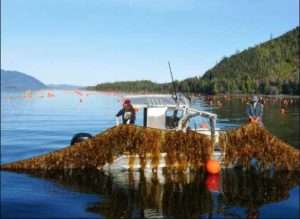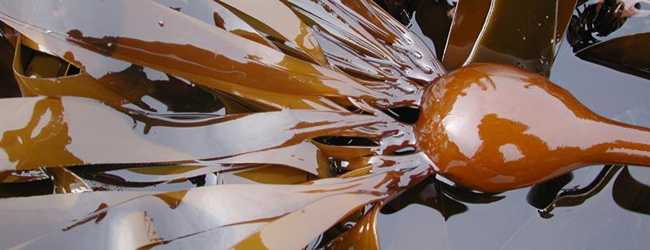
NOAA and partners in the State of Alaska are announcing plans to identify Aquaculture Opportunity Areas (AOAs) in Alaska state waters. These areas will be selected through engagement with tribes and the public, a process that allows constituents to share their community, tribal and stewardship goals for sustainable aquaculture development in Alaska’s coastal and marine waters.
Alaska will join Southern California and the Gulf of Mexico as the third region in which NOAA is working with partners to identify AOAs. The multi-year process to identify AOAs will be conducted in partnership with the State of Alaska and follows a comment period during which NOAA received public support for aquaculture from Alaska Native organizations, the Alaska Department of Fish and Game, Alaska Governor Mike Dunleavy, members of Alaska’s legislature as well as industry and research institutions.
“With more coastline than all of the Lower 48 states combined, Alaska is uniquely positioned to benefit from a growing marine aquaculture industry,” said NOAA Fisheries Assistant Administrator Janet Coit. “Aquaculture Opportunity Area identification efforts use the best available science, Indigenous Knowledge and collaboration with local communities to foster shellfish and seaweed aquaculture — benefiting Alaska’s Blue Economy.”
In 2022, aquaculture production sales in Alaska totaled $1.9 million, and the state is experiencing an increase in aquaculture permit applications. Aquaculture in AOAs will support environmental, economic and social sustainability.
The identification process for AOAs announced today is focused in Alaska state waters and will not include federal waters. NOAA will only consider marine invertebrates — like shellfish and sea cucumbers — and seaweed farming when identifying AOAs in Alaska. Finfish farming in Alaska state waters is prohibited by law.
“I appreciate NOAA’s decision to begin working with the State to identify Aquaculture Opportunity Areas in Alaska,” said Alaska Governor Mike Dunleavy. “My Administration continues to work closely to promote the responsible development of aquaculture in our pristine coastal waters. This sector has huge growth potential and will provide yet another example of Alaskan leadership in the seafood industry. Our state was predicated on resource development and state management of our fisheries. To that end, I welcome this help from NOAA.”
The State of Alaska serves as a crucial NOAA partner in the design and identification of appropriate locations for AOAs and commercial aquaculture. Identification of these areas will also be shaped through a public process that provides multiple opportunities for the public to share their tribal, community and stewardship goals. NOAA’s National Centers for Coastal Ocean Science will provide support for AOA planning in Alaska through ecosystem modeling to help determine the best size and location for AOAs.
“Marine aquaculture is part of the NOAA Fisheries’ strategy for economic and environmental resilience in coastal communities and supports healthy oceans,” said Danielle Blacklock, director of NOAA’s Office of Aquaculture. “In a changing climate, aquaculture is a critical component of sustainable food systems, marine habitats and coastal economies.”
Identifying AOAs is helpful for prospective aquaculture growers to consider site selection and environmental analysis, but does not serve as a preapproval in the process. Prospective aquaculture growers will still have to go through comprehensive state and federal permitting processes.
NOAA Fisheries will solicit public comments as the identification process for AOAs moves forward. [content id=”79272″]








